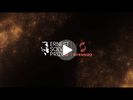The 2024 Ernest Solvay Prize goes to Prof. Omar Yaghi
The Science for the Future Ernest Solvay Prize by Syensqo has been awarded to Omar Yaghi in recognition of his pioneering work in reticular chemistry, the science of building chemical structures from molecular building blocks. This is a field of chemistry with many promising applications for the future, such as CO2 capture and hydrogen storage, as well as water harvesting and gas purification.
Omar Yaghi is the James and Neeltje Tretter Chair Professor of Chemistry at the University of California, Berkeley,
The award ceremony of the Ernest Solvay Prize by Syensqo will be held at the Palais des Académies in Brussels on March 19, 2024.
The Ernest Solvay Prize: recognizing scientific originality and invention
In 1911, Ernest Solvay brought 24 of the world’s most brilliant minds together to advance scientific research, at the first Solvay Conference – a tradition that continues to this day. This extraordinary convergence of scientific explorers is the foundation for Syensqo.
Previously known as the Solvay Prize, the Science for the Future Ernest Solvay Prize by Syensqo builds on our company’s legacy, by honoring one of the world’s foremost explorers in the field of chemistry.
Since 2013, the prize has recognized major scientific discoveries that have the potential to shape the chemistry of tomorrow and promote human progress. Every two years, the most prominent researcher is awarded a €300,000 prize.
At Syensqo, that legacy and spirit of innovation lives on. The new prize will recognize the essential role of science in helping to solve some of the world’s most pressing challenges – with the first awards taking place in 2024.
Extending a legacy
Previous prize laureates include Professor Peter G. Schultz in 2013, Professor Ben Feringa in 2015, Professor Susumu Kitagawa in 2017, Professor Carolyn Bertozzi in 2020 and Professor Katalin Karikó in 2022.
Pr. B Feringa, Pr. C. Bertozzi and Dr. K. Karikó have all gone on to receive Nobel Prizes, in 2016, 2022 and 2023 respectively.
Meet our international jury
Our international jury met at the Maison Ernest Solvay in Brussels on January 17, 2024 to designate the laureate.
Attendants and Jury members:
- Prof. Sven Lidin (President of the jury, University of Lund-Sweden)
- Prof. Steven Chu (University of Stanford-United States of America)
- Prof. Ben Feringa (University of Groningen-The Netherlands)
- Prof. Susumu Kitagawa (University of Kyoto-Japan)
- Prof. Dame Carol Robinson (University of Oxford-United Kingdom) (remote)
with assistance by Dr. Patrick Maestro (Consultant to Syensqo) and Prof. Anne De Wit (Université libre de Bruxelles, Belgium).
Sven Lidin, president of the Ernest Solvay Prize jury, Professor of inorganic chemistry at Lund University
Sven Lidin is a Swedish chemist and Professor of inorganic chemistry at Lund University.
Sven Lidin's research work has mainly taken place in materials science. He has studied minimal surfaces, to explain chemical phenomena, and determined the structure of complex and unusual crystalline, so-called inorganic substances.
Sven Lidin defended his dissertation in 1990 at Lund University. During the years 1990-1991, Lidin was a Post-doc at the Australian National University in Canberra, Australia and the Max Planck Institute for Solid State Physics in Stuttgart, Germany. He has been appointed Associate Professor at Lund University in 1991. In 1996, he became Professor of inorganic chemistry at Stockholm University. In 1997 he was awarded the Göran Gustavsson Prize in Chemistry by the Royal Swedish Academy of Sciences and in 1999 the Norblad Ekstrand Medal by the Swedish Chemical Society.
Lidin is an active researcher at the Center for Analysis and Synthesis at the Department of Chemistry, Lund University.
Sven Lidin has been a member of the Royal Swedish Academy of Sciences since 2002 in the class for chemistry and a member of the Nobel Committee for Chemistry since 2003. In 2010 he was elected to both the Royal Physiographic Society in Lund and the Swedish Academy of Engineering.
Sven Lidin has also taken on a number of assignments in society and business. He is a member of the boards of the technology company X-Brane AB and sits on SPAGO Imaging AB's scientific council.
At the Nobel Prize ceremony on December 10, 2011, Lidin gave the presentation speech of this year's winners in chemistry.
Steven Chu, recipient of the 1997 Nobel Prize in Physics, former U.S. Secretary of Energy.
Steven Chu is a physicist and US politician.
Steven Chu received his bachelor's degree in 1970 from the University of Rochester and his doctorate from the University of California at Berkeley in 1976, then remained two years at Berkeley as a post-doctoral researcher before joining the Bell laboratories. It is in these laboratories that he and his team worked on laser cooling of atoms.
He is co-laureate with Claude Cohen-Tannoudji and William D. Phillips of the Nobel Prize in Physics of 1997 "for the development of methods used to cool and confine atoms using laser light". He left Bell Laboratories in 1987 to become professor of physics at Stanford University, where he headed the physics department from 1990 to 1993 and from 1999 to 2001. He was hired as director of the Lawrence Berkeley National Laboratory in 2004. Since 2020, he is Chairman of the Scientific Council of the Higher School of Industrial Physics and Chemistry of the City of Paris.
On January 20, 2009, Steven Chu was appointed United States Secretary of Energy in President Barack Obama's administration. He was in charge of the application of the ecological and energy program desired by President Obama, himself being a supporter of renewable energies. The 1st June 2009, he announced the creation of a fund of US $ 256 million to improve the energy efficiency of major industries in the United States. He did not want to be reappointed during the second term of the Obama administration and left his post in 2013. Steven Chu then became Professor at Stanford University again.
Chu's research has focused primarily on atomic physics by developing methods to cool and capture atoms using lasers. While at Stanford, his research extended to polymer physics and biophysics.
Chu along with three other professors launched the Bio-X program, an interdisciplinary approach to biology and medicine.
Ben Feringa, recipient of the Nobel Prize for Chemistry in 2016, Professor at the University of Groningen, a former recipient of the 2015 Chemistry for the Future Solvay Prize.
Bernard Lucas Feringa is a Dutch chemist who won the 2016 Nobel Prize for Chemistry, which he obtained for his work with Jean-Pierre Sauvage and James Fraser Stoddart on the design and synthesis of molecular machines.
Ben Feringa obtained a doctorate in 1978 entitled "Asymmetric oxidation of phenols. Atropisomerism and optical activity" at the University of Groningen under the supervision of Professor Hans Wijnberg. After a short period at Shell in the Netherlands and the United Kingdom, he was appointed Professor at the University of Groningen in 1984 (Lecturer) then Full Professor, succeeding Professor Wijnberg, in 1988. The beginning of his career was focused on homogeneous catalysis and catalic oxidations, focusing in particular on stereochemistry with major contributions in the field of enantioselective catalysis, including monophos ligands used in asymmetric hydrogenations, the additions conjugated asymmetric reactive organometallic, including with organolithium highly reactive, the photochemistry organic and stereochemistry. In the 1990s, Ben Feringa's work in stereochemistry led to major contributions in photochemistry, producing the first molecular rotary motor started by monodirectional light and later a molecular car, known as nano car, driven by electrical impulses.
Ben Feringa holds more than 30 patents and published more than 650 articles in peer-reviewed journals in 2016, he is cited over 30,000 times and has an h index of over 90. He has supervised over 100 doctoral students during his career.
Susumu Kitagawa, winner of the 2017 Chemistry for the Future Solvay Prize, professor at Kyoto University
Susumu Kitagawa is a Japanese chemist working in the field of coordination chemistry, with a specific focus on the chemistry of organic–inorganic hybrid compounds, as well as chemical and physical properties of porous coordination polymers and metal-organic frameworks in particular. He is currently a Distinguished Professor at Kyoto University, in the Institute for Integrated Cell–Material Sciences, of which he is co-founder and current director.
From 1975 to 1979, Professor Kitagawa pursued and obtained a PhD degree in hydrocarbon chemistry, at Kyoto University, where he had previously done his undergraduate studies. He was appointed in 1979 at Kindai University as Assistant Professor, promoted first to Lecturer in 1983, and in 1988 to Associate Professor. In 1992, he became Professor of Inorganic Chemistry at Tokyo Metropolitan University and in 1998 Professor of Inorganic Functional Chemistry at the University of Kyoto, in the Department of Synthetic Chemistry and Biological Chemistry. In 2007 he co-founded the Institute for Integrated Cell-Material Sciences and was named Deputy Director. Since 2013 he is the Director of the Institute.
He is a pioneer and leading scientist in the field of metal-organic frameworks (MOFs), a new class of nanoporous materials. MOFs look like small cages made from networks of metallic knots linked by organic molecules. The “holes” in the network are much, much smaller than the diameter of a single human hair and can capture gases like CO2, methane or hydrogen with the purpose of re-using them for applications in chemistry or energy. The cage size can be adapted to the type of gas to be captured.
The 2017 Chemistry for the Future Solvay Prize has been awarded to Professor Susumu Kitagawa for his work in developing metal-organic frameworks, a new class of materials with a range of potential future applications, including the capturing of polluting gases.
Dame Carol Vivien Robinson, University Chair of Dr. Lee’s Professor of Chemistry, is the first Director of the Kavli Institute for Nanoscience Discovery at Oxford
Dame Carol Vivien Robinson is a British chemist.
Carol Robinson holds the University Chair of Dr. Lee’s Professor of Chemistry and is the first Director of the Kavli Institute for Nanoscience Discovery at Oxford. She is recognized for establishing mass spectrometry as a viable technology to study the structure, function and interactions of proteins and their complexes. Her collaborations span both academic and industrial laboratories and in 2016, her spin-out company, OMass Technologies, was founded. Now trading as OMass Therapeutics the company uses high definition native mass spectrometry to develop drug therapies for use in immunologic and genetic disorders.
Carol graduated from the Royal Society of Chemistry in 1979 and completed her Ph.D. at the University of Cambridge. She took a career break of eight years to bring up her children and later became the first female Professor of Chemistry at the University of Cambridge (2001-2009). She has held Dr. Lee’s Chair in Chemistry since 2009 and is Oxford’s first female Professor of Chemistry. Her work has attracted over twenty awards and prizes including most recently, the Othmer Gold Medal from the Science History Institute (2020), Royal Medal A from the Royal Society, Novozymes Prize from the Novo Nordisk Foundation and Stein and Moore Award from the Protein Society (2019). Carol is the former President of the Royal Society of Chemistry (2018-2020) and a Foreign Associate of the National Academy of Sciences USA. She holds fifteen honorary doctorates and offices and received a DBE in 2013 for her contributions to science and industry.
Full Professor in the Chemistry Department at the Université Libre de Bruxelles (Belgium).
She is the scientific secretary of the international scientific committee for chemistry of the International Solvay Institutes for Physics and Chemistry.
Past CSO of Solvay,
Member of the Académie des Technologies in France, he was at the origin of the creation of several joint teams between Solvay, CNRS, and universities worldwide.

Our scientific Hall of Fame
From Professor Schultz in 2013 till Professor Karikó in 2022, learn more about the previous laureates of the Ernest Solvay Prize and their prestigious careers.

The world’s most prestigious scientific conferences
From the prestigious conferences initiated in the early 20th century to today’s Ernest Solvay Prize, we have always maintained a tradition of encouraging the advancement of scientific research.














